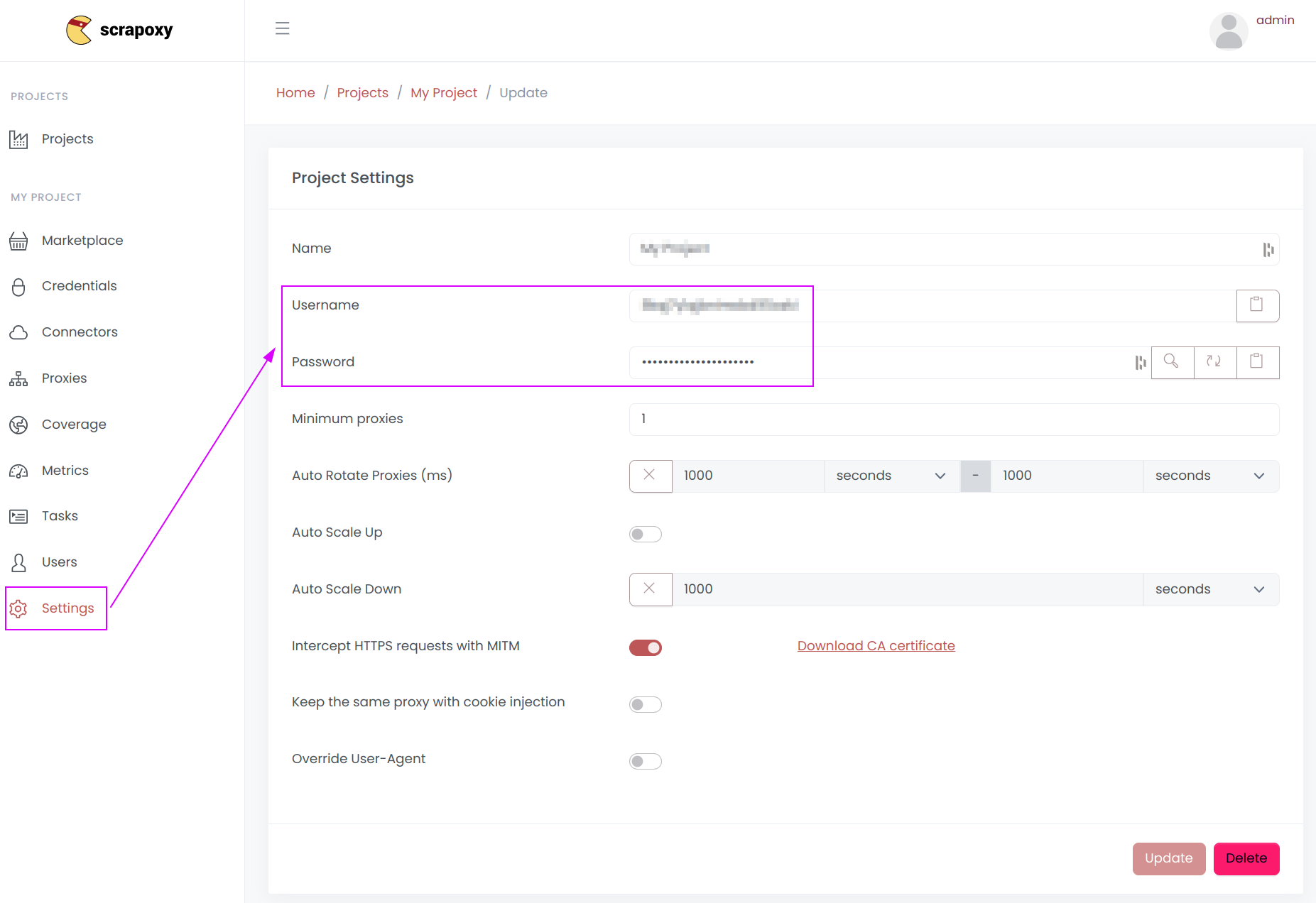Errors
Scrapoxy can show different errors, each with:
- an HTTP status code
- an ID
- a description
Here are the errors you might see:
407 HTTP Status
All these errors are related to authentication with Scrapoxy.
ID: 'no_token'
This error occurs when there is no authentication token in the header request. To fix this, add the Proxy-Authorization header with the token formatted as Basic BASE64(USERNAME:PASSWORD).
Use the username and password found in the Project Settings tab:

ID: 'no_project'
This error occurs if the token exists but does not match any project (invalid token).
Please verify the username and password in the Project Settings tab:

557 HTTP Status
All these errors are related to the Scrapoxy behavior.
ID: 'no_proxy'
Authentication is successful, but no proxies are currently online:

Please ensure you have at least one proxy online (green status) in the Proxies tab:

ID: 'wrong_url'
The URL sent to Scrapoxy is incorrect. This error occurs when Scrapoxy is requested to collect:
- An empty URL.
- A URL without a hostname.
ID: 'cannot_scaleup'
This error occurs when attempting to scale the project. It is usually due to a connectivity issue between the commander, master, or database.
INFO
This only happens when Auto Scale UP is enabled and the project's status is CALM.
ID: 'build_request' / 'build_connect'
This occurs when the master tries to create a request and:
- The connectors do not exist.
- The request parameters are incompatible with the connector.
INFO
build_request is for HTTP requests, and build_connect is for CONNECT requests.
ID: 'socket_error'
This occurs during a CONNECT request when there is a problem with the relaying socket.
ID: 'write_error'
This occurs during a CONNECT request when sending HTTP headers on a closed socket.
ID: 'request_error'
This occurs when the scraper triggers an error on the outbound stream.
It can be due to many issues such as:
- a connection hangout,
- flow problem,
- incorrect values,
- or continuing to send packets on a closed connection.
ID: 'response_error'
This can originate from 2 network elements in the inbound stream: the target website or the connector (cloud provider or proxy service).
It can be due to many issues such as:
- a connection hangout,
- flow problem,
- incorrect values,
- or continuing to send packets on a closed connection.

 Scrapoxy
Scrapoxy